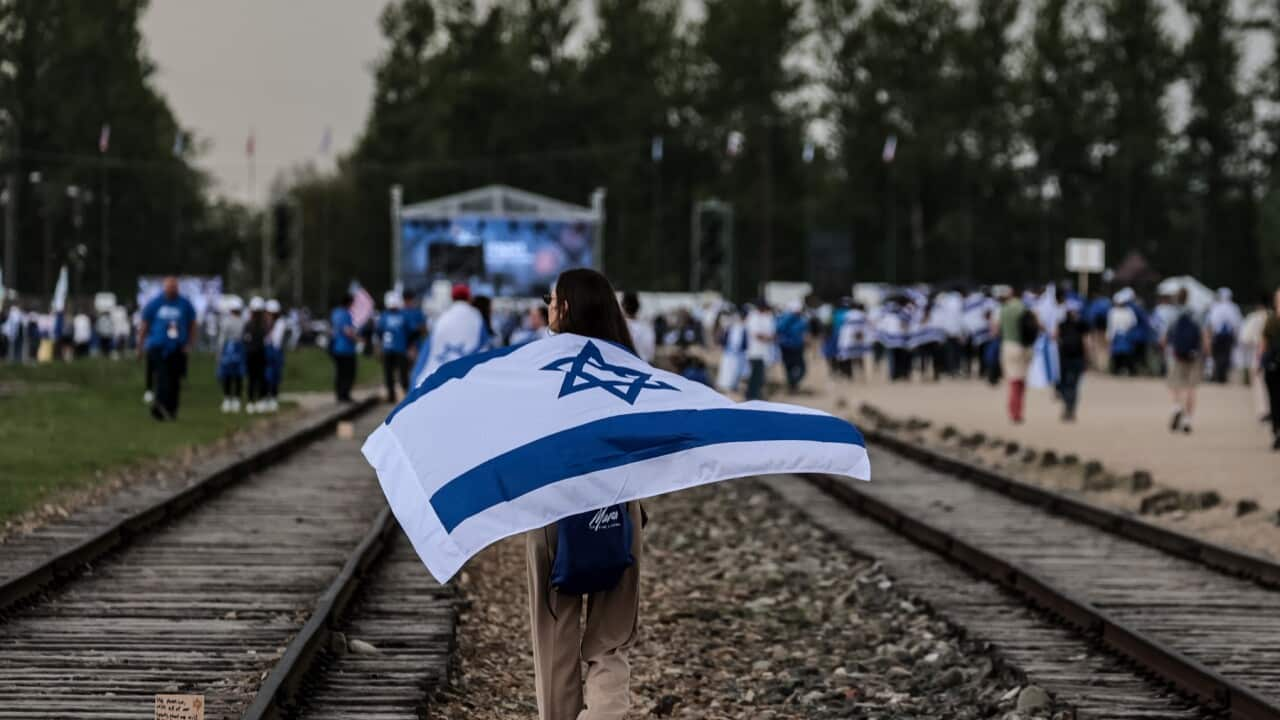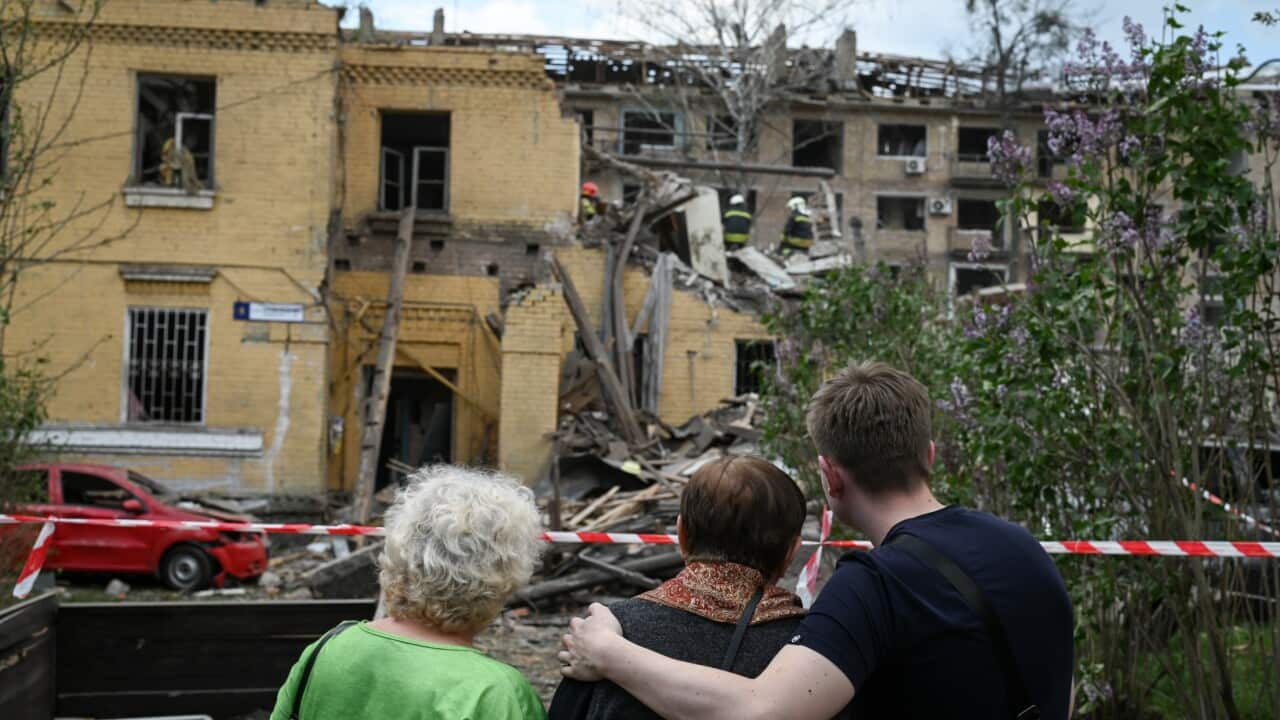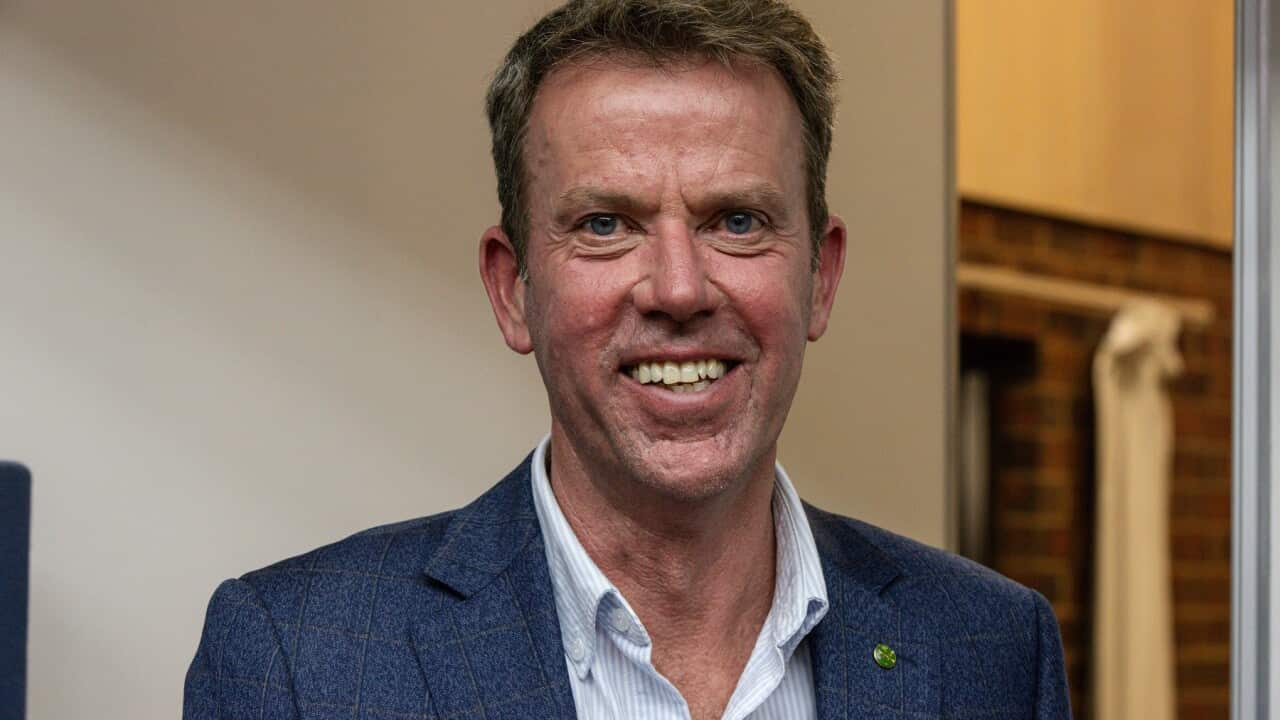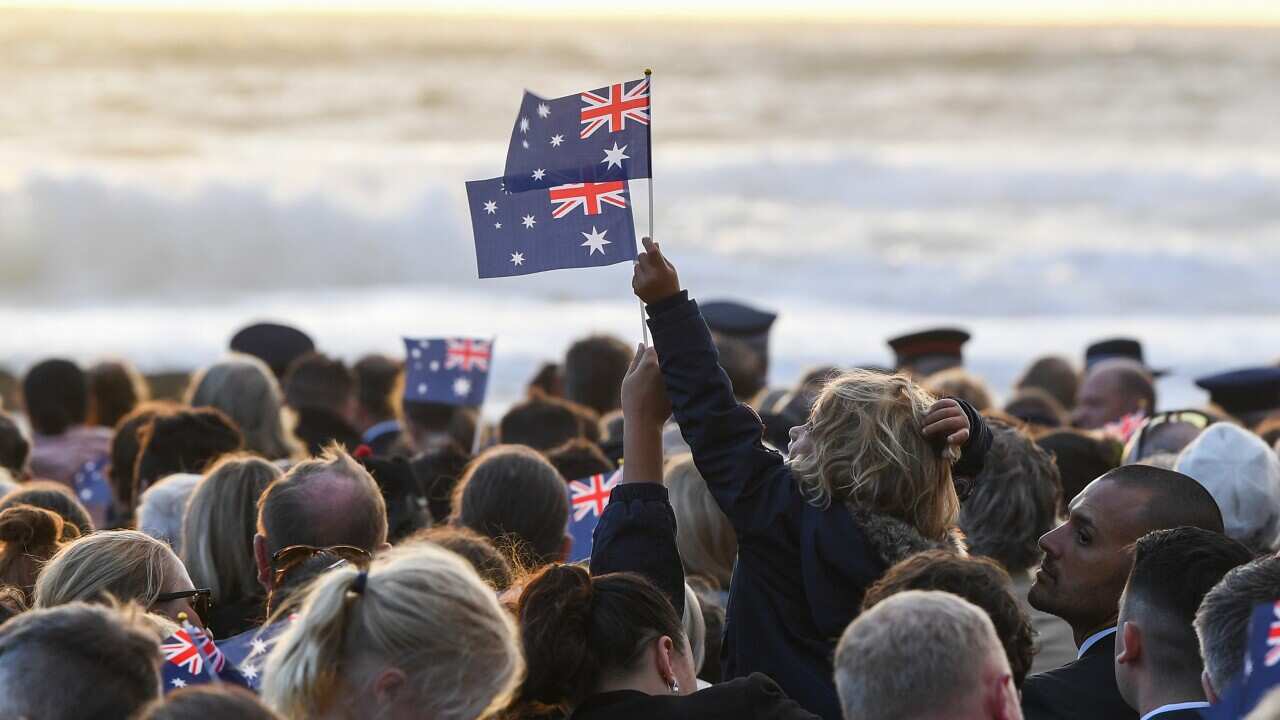TRANSCRIPT
Crowds singing as they march 3 kilometres through the former Auschwitz Nazi death camp - an annual tradition honouring the six million Jews who died under Nazi rule, among other minorities, including Roma people, sexual minorities, and people with a disability.
Many held Israeli flags and photos of the 59 remaining hostages in Gaza calling for their release.
Known as the March of the Living, this year marks 80 years since the camp's liberation.
More than 1 million people, mostly Jews, perished in gas chambers or from starvation, cold and disease at Auschwitz, which Nazi Germany set up in occupied Poland during World War Two.
More than 3 million of Poland's 3.2 million Jews were murdered by the Nazis, accounting for around half the Jews in Europe killed during the Holocaust.
Speaking at the memorial, 87-year-old Holocaust survivor, Dr Martin Stern, recalls how he was captured at school and sent to Terezin concentration camp in what's now the Czech Republic.
He says humanity must learn from the Holocaust.
"Humanity claimed or pretended to learn the lesson. In a textbook on genocide I've got at home, it says there have been at least fifty genocides since people said never again. That textbook is now quite old. It will be worse than that. Humanity claims to have learned the lesson, but it has often drawn the wrong conclusion."
Other survivors, like 89-year-old Polish-born Sol Nayman, insists people must remember the Holocaust.
He escaped with his family during the Second World War to the woods where they fled to the Soviet Union, and spent time in a labour camp south of the Arctic Circle, and another in Ukraine.
"The worst thing about the Holocaust is that people may forget about it. There are still billions of people who claim to be Holocaust deniers. And I say to them, come and walk with me through Auschwitz, that's where the proof is. So we will continue to speak about it. We will continue to teach about it, and hopefully it will make a difference."
Like many around the world, educating people on the Holocaust is part of Sue Hampel's mission.
Research and teaching associate at Monash University in Melbourne, Ms Hampel has helped shape the curriculum for Holocaust education in Victoria.
She is leading a bipartisan Victorian parliamentary delegation participating in the March of the Living in Poland.
She told SBS Hebrew about her story as the daughter of a Holocaust survivor.
"My father's name was Andre Zelig and he was the sole Holocaust survivor from his large family. They were all taken to Auschwitz where they were murdered, and he was 16 years old and survived, came to Australia."
Ms Hampel says her father was lucky to survive as one of a group of around 1000 orphans referred to as the Buchenwald boys who were liberated at Buchenwald camp.
The 65 who ended up arriving in Australia formed a close brotherhood, as Ms Hampel recounts how her father met her mother in Australia.
"I always knew his story. It was always part of me, part of growing up, and I decided that I had to do something to make the world a better place so that what happened to my dad wouldn't happen again in the future."
Central to Ms Hampel's work is ensuring we can learn from the wrongs of the past.
"I just think you have to learn from the past. I mean, for me, it's obviously the Holocaust, but there are lots of lessons that we can learn from past history that I think we have to take seriously because we take so much for granted today. We've been in a very fortunate situation because the world changed. The world order changed. After World War ii, the United Nations was reborn. There were genocide conventions, declaration of human rights, and we've been very lucky to live in this relatively safe 70 to 80 year period. So I think that we have to remember to protect and guard our democracy and not to take things for granted and to listen to the words of all those survivors be their holocaust, be they from other genocides, because things can change if we don't, if we not careful."













